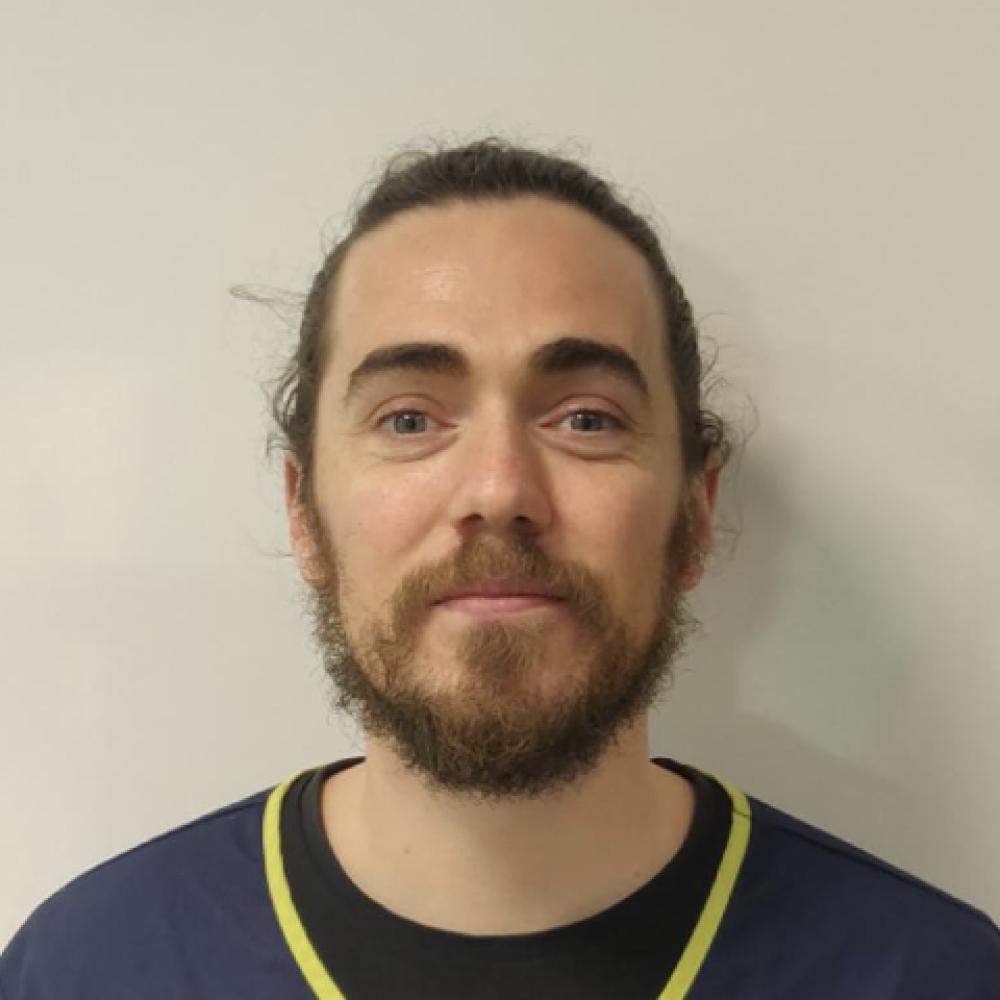Study online and enhance your clinical practice
Our Online CE program in Medical Nursing has been developed to provide veterinary technicians with a keen interest in internal medicine access to our world-class teaching materials. Let our specialists guide you deep into topics ranging from respiratory diseases like asthma and pneumonia to advanced diagnostics such as ultrasound and radiation therapy. Gain an even deeper understanding of the advanced medicine you can offer your patients by studying part-time, at your own pace. This program allows you to effectively manage your work-life balance while taking essential knowledge back to practice immediately.
How does it work?
This program is built around eight 100% online modules, providing 96 hours of RACE-approved CE, covering key topics in small animal medicine, such as best approaches to the oncologic patient, rehabilitation methods, pain management, and anesthesia. Each module consists of four sessions spread over one month and includes nine online lessons and several interactive learning resources. Our CE course is authored by recognized specialists and highly qualified and experienced veterinary professionals. Participants will also be provided with additional study skills sessions and the support of a dedicated tutor.
Advance your career by achieving an international certificate
The program in Medical Nursing is accredited by the International School of Veterinary Postgraduate Studies (ISVPS), allowing you to achieve an international qualification - the Veterinary Technician Certificate (VTCert) or Veterinary Paraprofessional Certificate(VPP Cert).
After completing this CE program, you will have gained new confidence and knowledge, which will allow you to easily meet each patient's needs. Grab this opportunity to advance your career, transform your clinical practice, and strengthen your position in the veterinary team!
Hear what our delegates have to say
Don’t just take our word for it - our delegate feedback speaks for itself.
Key features of this program
8 varied modules / 96 hours of RACE-approved CE
Covering key topics in medical nursing delivered over 8 months
Multiple learning processes
Presentations, written notes, interactive quizzes, multiple choice question writing and exercises which test your knowledge as you work
Discussion forum
A discussion forum for conversation, debate and sharing cases with your peers and Module Tutors
Interactive and engaging modules
Which allow you to absorb the learning materials in an online environment
100% online
Giving you access 24/7 wherever you are using your laptop or tablet
Regular assessments
Pre-module and post-module assessments encourage you to reflect on your learning and evaluate your progress
Vet Tech study skills area
Additional learning on topics such as academic writing, reflection and revision techniques
Four sessions per month
Each module consists of four sessions spread over one month. Sessions comprise separate lessons to work through at your own pace. The fourth week of the month will provide reflective sessions and, training in study skills and revision materials will be provided
Dedicated CE Program Coordinator
A dedicated Improve Veterinary Education coordinator will support you every step of the way throughout the entire duration of the course
Know-How
Join the global veterinary online learning CE specialists and benefit from our know-how and high-quality resources
Support and guidance from the specialist Module Tutor
The tutor who specializes in the module subject area will provide online support during each module and will be available to answer all your questions
8 varied modules / 96 hours of RACE-approved CE
Covering key topics in medical nursing delivered over 8 months
Multiple learning processes
Presentations, written notes, interactive quizzes, multiple choice question writing and exercises which test your knowledge as you work
Discussion forum
A discussion forum for conversation, debate and sharing cases with your peers and Module Tutors
Interactive and engaging modules
Which allow you to absorb the learning materials in an online environment
100% online
Giving you access 24/7 wherever you are using your laptop or tablet
Regular assessments
Pre-module and post-module assessments encourage you to reflect on your learning and evaluate your progress
Vet Tech study skills area
Additional learning on topics such as academic writing, reflection and revision techniques
Four sessions per month
Each module consists of four sessions spread over one month. Sessions comprise separate lessons to work through at your own pace. The fourth week of the month will provide reflective sessions and, training in study skills and revision materials will be provided
Dedicated CE Program Coordinator
A dedicated Improve Veterinary Education coordinator will support you every step of the way throughout the entire duration of the course
Know-How
Join the global veterinary online learning CE specialists and benefit from our know-how and high-quality resources
Support and guidance from the specialist Module Tutor
The tutor who specializes in the module subject area will provide online support during each module and will be available to answer all your questions
Program details
Module Summary
01 - Anaesthesia
Key learning objectives
At the end of the module delegate should be able to:
- Review acid/base balance, the practical application of blood products and explain when different fluid replacement options should be used. Demonstrate the ability to perform all types of fluid administration calculations.
- Explain the importance of client consent forms, patient anaesthesia records and be able to complete both correctly.
- Obtain knowledge of basic through to advanced patient monitoring and the pros and cons of multi-parameter monitoring for specific cases. Describe and explain abnormal capnography and pulse oximetry waveforms and suggest options to improve them.
- Understand the use of different pre-anaesthetic medication, induction and maintenance agents, explaining the advantages and disadvantages of each in specific cases.
- Identify different types of endotracheal tubes and their use explaining the advantages and disadvantages of each. Demonstrate the skill of intubating easy & more difficult patients
02 - Analgesia
Key Learning Objectives
At the end of the modules delegates should be able to :
- Appreciate the pathophysiology of pain and be able to identify pain in different species using pain scoring methods.
- Explain the different classes of analgesia, including opioids, NSAIDs, local anaesthetics and other agents and their pharmacology and appreciate their different delivery methods for specific patients using the multi-modal approach.
- Pre-emptive analgesia theory and practical approaches to achieving it
- Outline the use of analgesia in medical patients for chronic and palliative use.
- Describe appropriate analgesic agents for the use of CRI, when and how these should be used/monitored and be able to perform a CRI calculation.
- Demonstrate different intravenous catheterisation techniques including central venous catheterisation.
- Be able to place a central venous line
03 - Principles- The Clinic
Key Learning Objectives
At the end of the module delegates should be able to;
- Discuss how hospital layout affects the running of a clinic in relation to infection control and the importance of specific patient areas on patient recovery.
- Understand how hospital acquired infections are obtained and spread, as well as the different types of infection.
- Distinguish between the terms of disinfection and sterilization and how these techniques are implemented within the hospital setting.
- Gain knowledge of the importance of the appropriate selection and use of medical equipment for specific diagnostic procedures and patient monitoring.
- Explain how to store, maintain and prepare the above equipment.
- Appreciate the importance of hospital Health & Safety.
- Be able to identify potential risks and hazards within the medical setting and have the knowledge of how to reduce these risks.
04 - Principles - The Patient
Key Learning Objectives
At the end of the module delegates should be able to;
- Discuss the importance of daily patient assessment and record keeping of the medical patient via charting systems. Be able to outline physical examination techniques and explain their relevance.
- Outline the importance of the specific nursing requirements of inpatients with specific pathophysiology and life stage. Be able to explain the importance of nursing care plans and their use.
- Obtain knowledge of the role of nutrition in the medical patient, identifying the advantages and disadvantages of both enteral and parenteral administration and how to manage these cases within the clinic.
- Select the appropriate patient preparation technique and positioning required for specific medical procedures.
- Identify medical diseases and procedures that result in an outpatient assessment and the significance of outpatient monitoring.
- Become familiar with identifying medical complications and consolidate your knowledge of how to minimise them.
- Explain the set up and maintenance of endoscopes and when they are most useful as part of a diagnostic work-up
- Appreciate the importance of clinical governance & client communication within the veterinary clinic.
05 - Imaging
Key Learning Objectives
At the end of the module delegates should be able to;
- Explain the different radiographic techniques available, their pros and cons and uses in specific situations
- Evaluate radiographic image quality to ensure diagnostic radiographs are available for interpretation and improve your basic film reading, identifying radiographic artefacts and faults.
- Revise contrast studies, becoming familiar with their use and the specific equipment required to perform them
- Understand the principles of ultrasound imaging and be familiar with how to set up and maintain the ultrasound machine and probes
- Identify specific equipment and materials required for ultrasound-guided procedures
- Employ the principles of FAST scanning to triage emergency cases
- Review advanced imaging (CT/MRI and scintigraphy) and their uses in diagnosis and monitoring medical cases
06 - Oncology
Key Learning Objectives
At the end of the modules delegates should be able to;
- Discuss the biology of cancer and paraneoplastic disease
- Describe the principles, challenges and ethics of cancer treatment in dogs and cats
- Outline the options for local management of tumours including surgery and radiation therapy
- Explain how systemic management of tumours can be achieved through chemotherapy, immunotherapy and targeted therapy
- Select appropriate diagnostic methods for the investigation and management of: Lymphoma; mast cell tumours; bone tumours; splenic tumours; oral tumours and selected other common tumours
- Familiarise yourself with specific feline tumours
- Identify and understand oncological emergencies
- Evaluate the unique challenges of starting an oncology clinic - practicalities of administering chemotherapy and management of clients
- Demonstrate an understanding of the significance of drug safety, staff and owner protection
07 - Body Systems
Key Learning Objectives
At the end of the module delegates should be able to;
- Appreciate clinical assessment and how it that can be used to narrow down location of a respiratory problem
- Explain the typical presentations, treatment and follow up required for a variety of respiratory diseases in small animal practice including feline asthma/bronchitis, chronic canine bronchitis, lungworm, pneumonia and nasal disease.
- Discuss the common signs of acute and chronic gastrointestinal disease and logical approaches to investigating the underlying causes
- Describe the most common gastrointestinal diseases and how to treat and/or manage them successfully.
- Demonstrate an understanding of the complexities of liver disease in the cat and dog
- Compare pancreatitis in cats and dogs in relation to presentation and treatment options
- Recognise the importance of the classification of chronic kidney disease in relation to management and monitoring
- Become familiar with the diagnostic, therapeutic and monitoring challenges of a variety of endocrine diseases including those associated with the pancreas, adrenal and thyroid glands.
08 - Medical Pharmacology
Key Learning Objectives
At the end of the module delegates should be able to;
- Appreciate the challenges involved in getting the best out of laboratory tests including sampling methods and test selection
- Describe a general approach to all poisoning cases including what resources are available, what diagnostic tests may help and how to treat common toxicities
- Discuss rational drug use– consider how we protect antibiotic use, other considerations in therapeutic trials in medicine cases and monitoring for side effects
- Consider traditional UK infectious diseases - how they are diagnosed, managed and treatment options
- Become familiar with infectious diseases new to the UK and discuss the challenges in diagnosis and treatment of these conditions
- Describe how antibody testing can be useful in vaccination protocols
- Be familiar with WSAVA vaccination guidelines
Optional Module Summary
01 - Medical Nursing Ultrasound Triage
Course Description/Objectives:
- Learn how to rapidly triage the medical emergency patient using ultrasound – and save lives!
- Emergency assessment of the acute abdomen – with confidence
- Quick and safe evaluation of the dyspnoeic dog and cat
- Is this cardiac or respiratory? – In seconds!
- Rapidly identify abdominal fluid/ internal bleeding/ pleural effusion/ pneumothorax/ pulmonary oedema
- Interactive, case-based approach to real emergencies and critical patients
.
Qualifications
Veterinary Technician Certificate (VTCert)
This course is accredited by ISVPS and allows you to achieve a Veterinary Technician Certificate
Veterinary Technician Certificate (VTCert)
By attending the full online structured program and following successful assessment you can gain a VTCert or VPPCert awarded by the International School of Veterinary Postgraduate Studies (ISVPS).
Only qualified Veterinary Technicians who have attended formal training can apply to undertake a VTCert.
Non-certified VetTechs and Veterinary Care Assistants can complete the program and achieve a VPPCert (eligibility criteria apply, see eligibility tab).
Prices include ISVPS registration and examination fees. All veterinary professionals will have the opportunity to request, at any moment of the program, a statement regarding their earned credits to present to their respective board.
Speakers
Pricing
$3,399.00
$3,700.00Payment & VAT Information
1. Many of our courses come with deferred payment and installment options. Click “Book Now” to see what’s available for this course.
2. VAT Details: Prices shown are exclusive of local sales tax. Applicable sales tax will be applied in the checkout.
Payment Terms & Conditions
Registration Information
100% Satisfaction
We're completely confident in the quality of our training and CE. So much so that if you're not 100% satisfied with your certificate course, we'll give you a 100% refund. Just get in touch with us within 30 days of your start date and we'll sort the rest. T's and C's apply.
Find out moreNo ordinary online learning experience
Learn with the leading global provider of online veterinary CE!
Find out more











